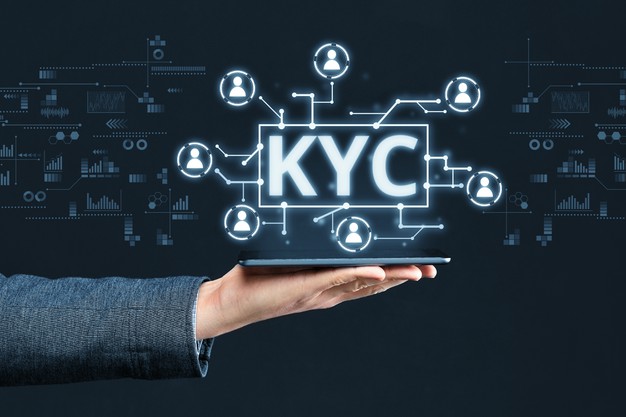Choosing a secure cryptocurrency exchange is crucial to the trading you are opting for the future. This is where the user needs to equally pay attention to the importance of KYC in the cryptocurrency exchanges dealing with a bitcoin exchange.
People who are naive to the world of cryptocurrencies need to learn a lot for them to ace the trading nits and grits. One of the initial things they should learn is to find a transparent and suitable online bitcoin exchange in India. This will allow them to buy cryptocurrencies for the fiat money. Purchasing bitcoins has its own associated challenges.
What Does KYC Stand For?

KYC simply means Know Your Customer. Although this seems like a marketing tagline, this has a lot to do with banks curbing illegal practices.
Simply putting it, banks need to know a few details about you before you are opting for their services. This is the way of verifying your identity so that no illegal activities take place.
Such practices are regulated and everyone who wants bank services need to go through the KYC procedures. Online crypto exchange platforms have taken this concept for real.
In the world of bitcoin exchange, where anonymity is the second way out, exchanges have found a legal way out to protect themselves from the aspect of money laundering.
Is The KYC Process Similar For All Cryptocurrency Exchanges?

In its technical essence, the KYC or Know Your Customer identification process requires proofs of identity along with relevant information crucial for verification. However, the actual process tends to differ among different exchanges. Each tends to vary in terms of IDs being asked, procedures being undertaken, signed being asked for etc.
Onboarding Cryptocurrency Customers

In case the market is experiencing a price hike, savvy investors are quick to buy and sell through crypto exchanges. Onboarding here means taking such potential customers and turning them into valuable, active users of a product or service.
However, regulations keep on changing and businesses dealing in crypto assets need to be prepared beforehand, adopt new standards along with protecting their business from regulatory scrutiny.
KYC is important for ensuring the customers about what they are claiming for. Money laundering has been recognised worldwide as investigated recently. Illicit activities seem to have been steadily increasing in cryptocurrency as well.
To stay ahead of such circumstances, exchanges need to add identity verification services to different points within that particular environment for reducing illicit activities.
Implementing KYC processes eventually help the financial institutions in handling checks and balances the wallets of several cryptocurrencies.
Employing a transparent and efficient KYC process will ensure things like-
- Building trust plans transparency with customers.
- Lowering the risk of financial crime.
- Helping to stabilize the crypto market.
- Keeping the custodial plus exchanges service complaint
With Bitcoin and other altcoins gaining momentum in recent years, investing in cryptocurrency still is looked down as highly speculative. Owing to the risk which is involved, proper KYC procedures will help the exchanges in understanding their customers along with their financial dealings.
KYC compliance may be somewhat time-consuming but people or exchanges who are engaged with it will surely encourage them to comply for their own advantage.
However, prior to providing sensitive identifying information, users should do this with their own diligence and make certain that the exchange is implementing the necessary amount of data security to keep the information safe and secure.
Example of KYC At Work

Majority of the crypto exchange platforms have taken this concept for real. In the world of bitcoin exchange, where anonymity is the second way out, exchanges have found a legal way out to protect themselves from the aspect of money laundering.
Majority of the recognised online exchanges make use of the KYC procedures for preventing any kind of misbehaviour. They keep adding an extra layer of security for curbing money laundering which seems self-explanatory.
These policies mainly deal with four matters which include verification processes, compliance officer, transaction monitoring, and risk assessment.
Identity Verification
The initial and crucial verification procedure is the one where the user verification takes place. Users are asked to provide some kind of identity document (passport, bank statement, ID, or more) for proving their actual identity. Similar kind of identification is carried out by several cryptocurrency exchanges.
Card Verification
The users need to use their cards for making payments on the bitcoin exchange in India. The information can be verified by the owner of the card. This is usually done by taking pictures of the user holding the card. Although some crypto exchanges do not consider this step, still some of the users are asked to do this from time to time.
Role of Compliance Officer
All the KYC procedures are looked after by someone known as a Compliance Officer. Their role consists of monitoring the aspect of money laundering. They may ask individuals to provide ID information and time to time reflect internal privacy policy renewal. Exchanges analyze users’ transactions as a part of their identity verification.
What Users Need To Complete Crypto Exchange KYC?

For completing the KYC exchange processes, users are requested to submit PII, which include their name, date of birth, social security number, address, and a phone number along with an email address.
Users also need to submit official supporting documents. The documents may vary depending on which platform one is opting for. Generally, photo government-issued identification like passport, driver’s license, etc is required along with proof of address.
In some cases, users are also required to take a selfie for biometric facial recognition. This needs to match with the official documentation of the user.
Summarising the importance of KYC, it is always beneficial to opt for KYC compliance. With proper KYC norms, it allows for accepting those clients in the bitcoin whose identity is established legally without complex or illegal profiling of the users.
While KYC can help in protecting the exchanges from financial criminals, manual processes may have their own challenges like expensive third party services, data security breaches, etc. Automated KYC solutions may help in reducing those extra expenses while ensuring security and safety in the crypto exchange market.
 Imagup General Magazine 2024
Imagup General Magazine 2024



